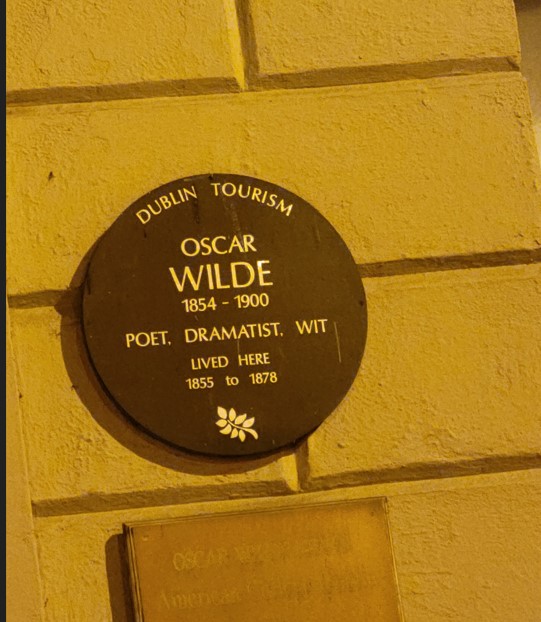
When I visited Dublin, I took the attached photograph of a plaque designating Oscar Wilde’s childhood home, which describes the man with the three titles of “Poet,” “Dramatist,” and “Wit.” I always found that description of him quite unique, as it would seem to imply that, when it comes to understanding Wilde, it is just as critical to understand his wit as it is the art he produced; in other words, ironically enough, it seems that Wilde has become a person particularly difficult to detach from his art. This, of course, goes against Wilde’s own beliefs (or, at least, his stated beliefs) that one must ignore the artist and criticize the art they produce independent of its creator. I think it is fair to say that, if Wilde’s goal was to create art which his audience could fully comprehend while ignoring the man behind the words, he failed, in two distinct respects. For one, very few of his works (specifically his plays) do not have characters the audience immediately understands to be a surrogate for Wilde himself. Here, we come to an impasse, as Wilde’s wit is torn between contributing to his art, and being a personality trait of his, no reader of any of his plays would complain that it is full of witticisms Wilde would likely say in real life, but how can Wilde expect the audience to disconnect the artist from the art, if his own art is such an overt reflection of his own personality? Furthermore, it’s not as if Wilde makes any real attempt to separate his art from his own life, that much is evident when reading his trial transcript, where Wilde (I do not think it is a stretch to say) acted remarkably similar to characters one might find in his plays, specifically the witty characters who do not take anything seriously. How then, can I, as a reader, be expected to separate the art from the artist, when Wilde treats the real world as if it were his own personal stage? I do not think Wilde is wrong to insert himself into his stories, all artists do, in some way or another, but I do think he is being unfair if he expects the audience to ignore his presence. I understand the desire for one’s art to be evaluated strictly on its own merits, independent of the artist behind it, but Wilde (perhaps not entirely unintentionally) makes it quite literally impossible to do so, as I think the existence of classes like this proves definitively.